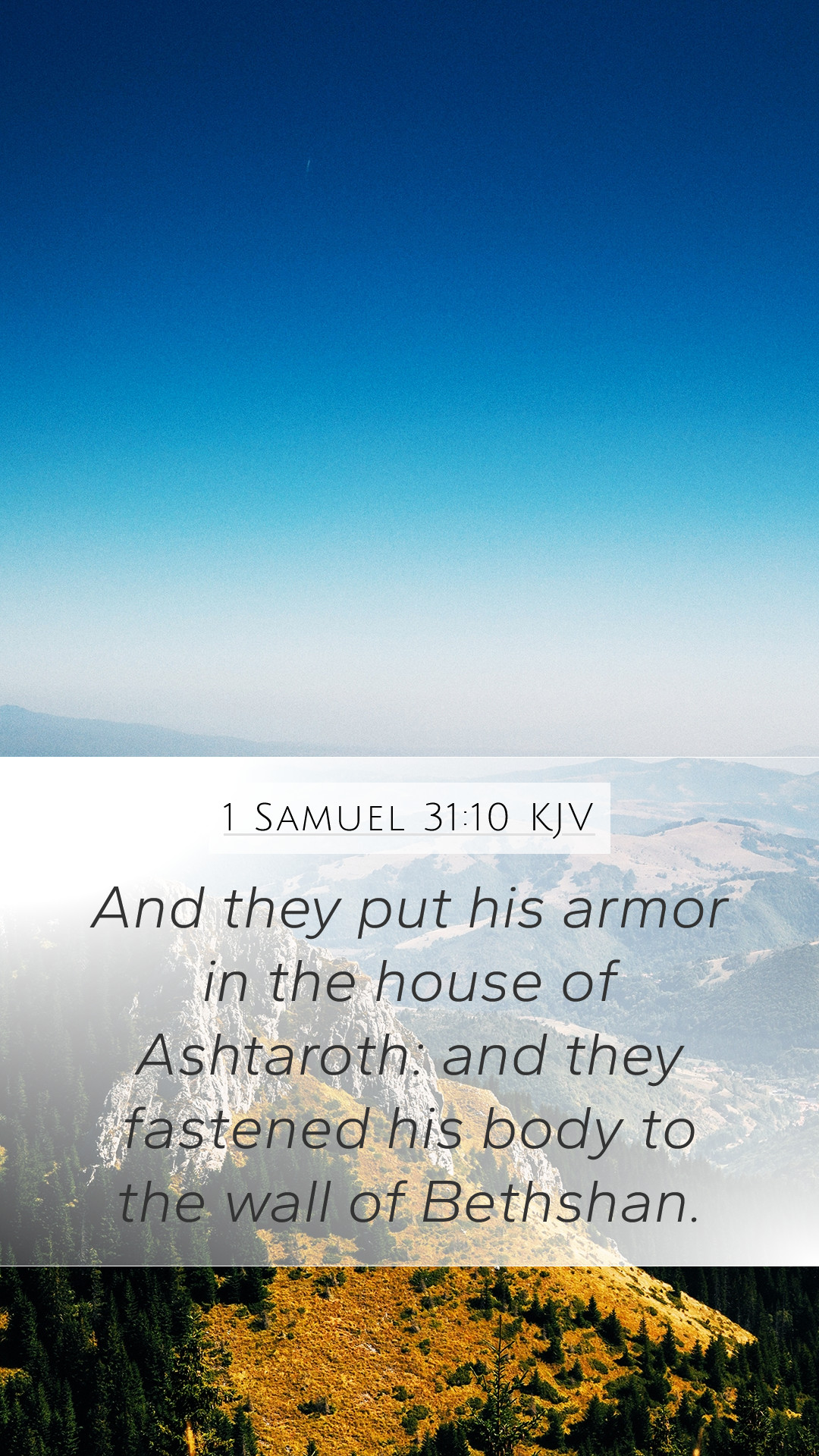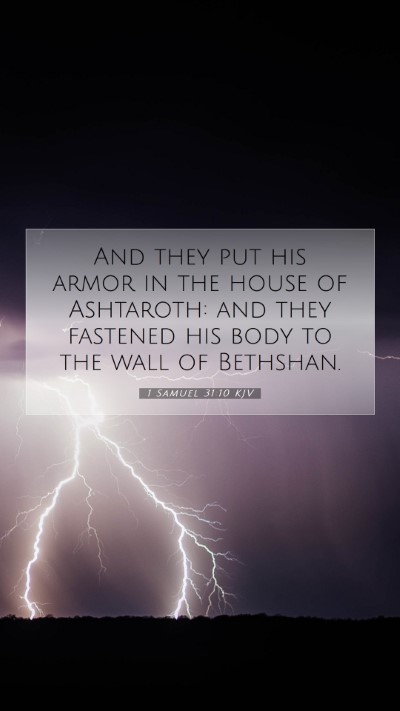Understanding 1 Samuel 31:10 - Bible Verse Commentary
Bible Verse (1 Samuel 31:10): "And they fastened his body to the wall of Beth-shan."
Context and Background
This verse comes at the climax of the tragic story of King Saul, Israel's first king. After being defeated in battle against the Philistines, Saul chooses to take his own life to avoid capture. His death, along with that of his sons, marks a significant and sorrowful turning point in Israel's history.
In understanding this passage, it is essential to recognize the historical and cultural context of the ancient Near East, where the treatment of a defeated king's body might serve as both a warning to others and a statement of power by the victors.
Bible Verse Meanings and Explanations
This verse reflects various dimensions of biblical exegesis and scripture analysis:
- The loss of leadership: Saul's failure as a leader culminates in his death and the disgraceful manner in which his body is treated. This indicates the gravity of his decisions throughout his reign.
- The cruelty of the enemy: The Philistines' act of displaying Saul's body symbolizes their triumph and serves to instill fear among the Israelites. It also teaches about the nature of spiritual warfare and the consequences of disobedience to God.
- The significance of burial practices: In ancient cultures, proper burial was crucial for honoring the deceased. Saul's dishonorable exposure reflects the disfavor the Lord had towards him due to his unfaithfulness.
Commentary Insights
Matthew Henry: Henry emphasizes the tragic dimension of Saul's story, noting that his fate was a direct consequence of his own choices. He points out how Saul's desire for power led him away from God, culminating in this shameful end.
Albert Barnes: Barnes discusses the significance of Saul's body being hung on the wall, analyzing the ancient customs regarding warfare. He interprets this act as a profound warning that serves as a testimony to the seriousness of moral and spiritual decay.
Adam Clarke: Clarke highlights the implications of this verse in the context of God's dealings with Israel. He suggests that such a dishonorable act was allowed by God as part of divine judgment against Saul's unfaithfulness and disobedience.
Application of the Verse
1 Samuel 31:10 offers profound lessons and applications for contemporary readers:
- Leadership responsibility: Leaders in any capacity should understand the weight of their decisions and their impact on those they lead.
- Consequences of disobedience: This passage serves as a stark reminder that choices made outside of God’s will can bring about dire consequences, not only for oneself but for others as well.
- Respect for the dead: The treatment of Saul's body reflects a greater understanding of the dignity afforded to human life, urging a reevaluation of how society honors the deceased, even those who may have failed significantly in life.
Cross References
- 1 Samuel 28:19 - Saul's encounter with the medium of Endor highlights his desperation.
- 2 Samuel 1:11-12 - David's lament for Saul and Jonathan displays his respect for their lives.
- 1 Chronicles 10:8-12 - This parallels the account of Saul's death and emphasizes the importance of burial and respect.
Conclusion
The study of 1 Samuel 31:10 is enriched by understanding its context, the depth of its meaning, and the insights provided by these commentaries. This passage serves as a critical reflection on the consequences of leadership decisions, the importance of obedience to God, and the cultural practices surrounding death and honor.
As we seek to deepen our Bible study understanding, let this verse remind us of the importance of living faithfully and leadership integrity, both in spiritual matters and daily decisions.


